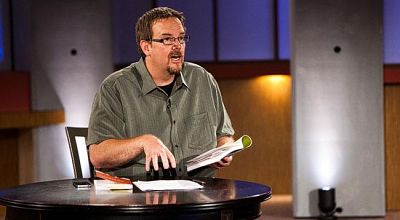Ed Stetzer oversees all activities of the LifeWay Insights division, including LifeWay Research, Corporate Communications and Ministry Development.
In this role, he also works with LifeWay’s president to assess opportunities that come directly to the CEO’s office and serves as chief strategic executive leader to discover new ministry opportunities.
In this Q&A, Stetzer talks about terms like Christian and evangelical and why these terms are becoming less helpful in the grand scheme.
You told The Exchange viewers: “I wish more would stop self-identifying as Christians.” Why will the “end of Christian America,” when understood correctly, help us to live out the gospel?
Many people who don’t fit the biblical term “Christian” still use it as a cultural term. “Cultural Christianity” confuses what Christianity is. It’s not a demographic category. It’s a life-changing relationship with Christ.
As I see it, about one-third of Americans are not Christians, about one-third are cultural (in name only) Christians, and about one-third have strong connections to some kind of church. That means two-thirds have no real church connection.
I think the nominal population, statistically, will go away. Half of those disconnected with church will soon stop calling themselves “Christian,” bringing helpful clarity to what a Christian actually is.
You’ve also said the term “evangelical” is becoming less helpful. Why? What term might be better?
“Evangelical” has lost its meaning for many people. It’s become politicized–as if it’s a voting block. The idea of “biblically driven” Christianity is what matters. That’s why we [at LifeWay Research] help churches, pastors and leaders understand cultural context for more effective ministry and be on mission. We provide research and training. Biblically solid Christians and churches make up the robust group of believers we have the privilege of helping – they ask us and we can help them.
How can churches reach the unchurched in this less Christian culture?
Reaching secular people requires us to rely less on religious memory–you can’t call people back to church. Instead, we need to teach believers to live on mission in their communities. Less “come to us” and more “go to them.”
Talk about engaging non-believers with the grand narrative of Scripture.
Engaging secular people is really a contrast in worldview. We need to be unapologetic about ours–the story of what God is doing in Christ through the grand narrative of Creation, Fall, Redemption and Restoration. We do that in our new curriculum, The Gospel Project, preparing people to know their faith so they can share it.
See an error in this article?
To contact us or to submit an article























